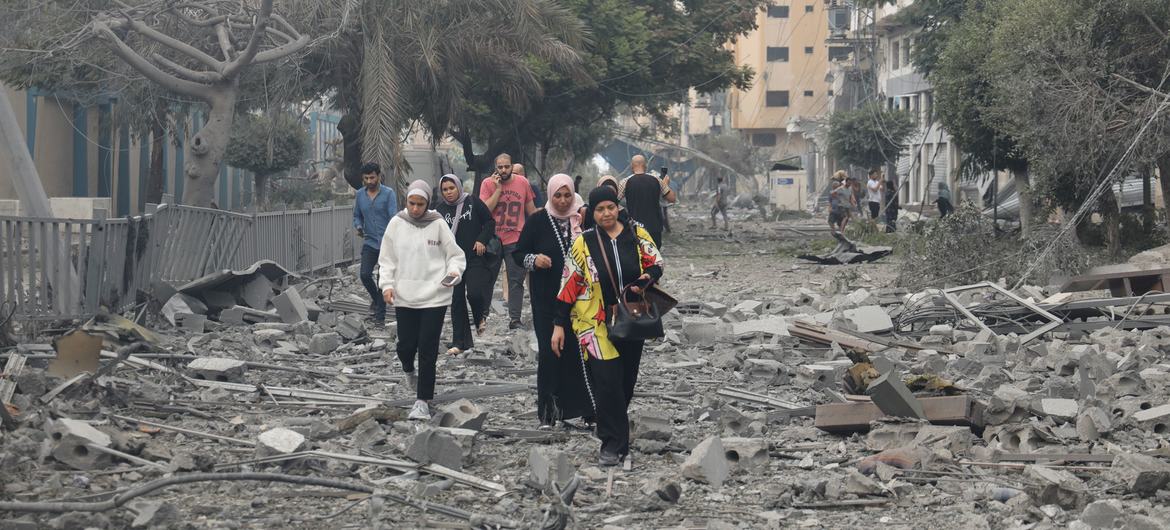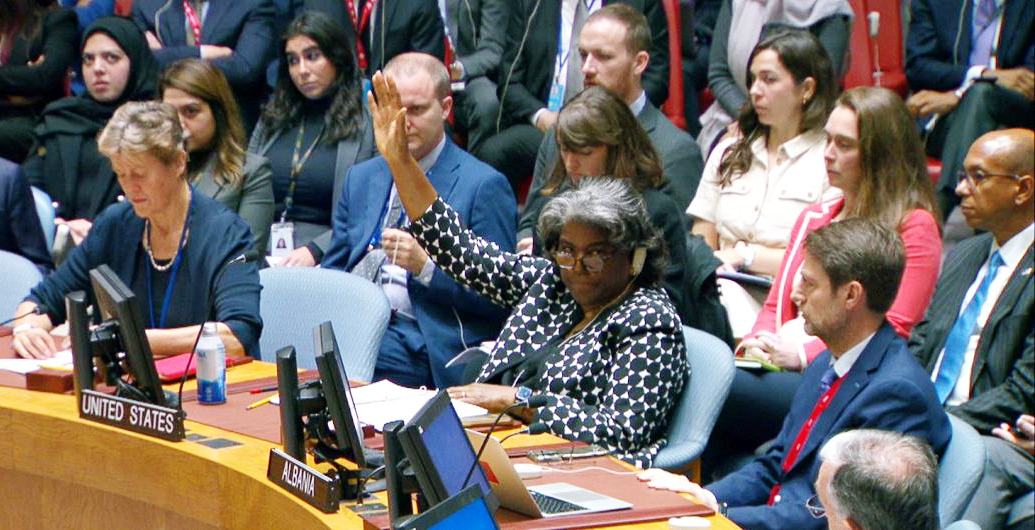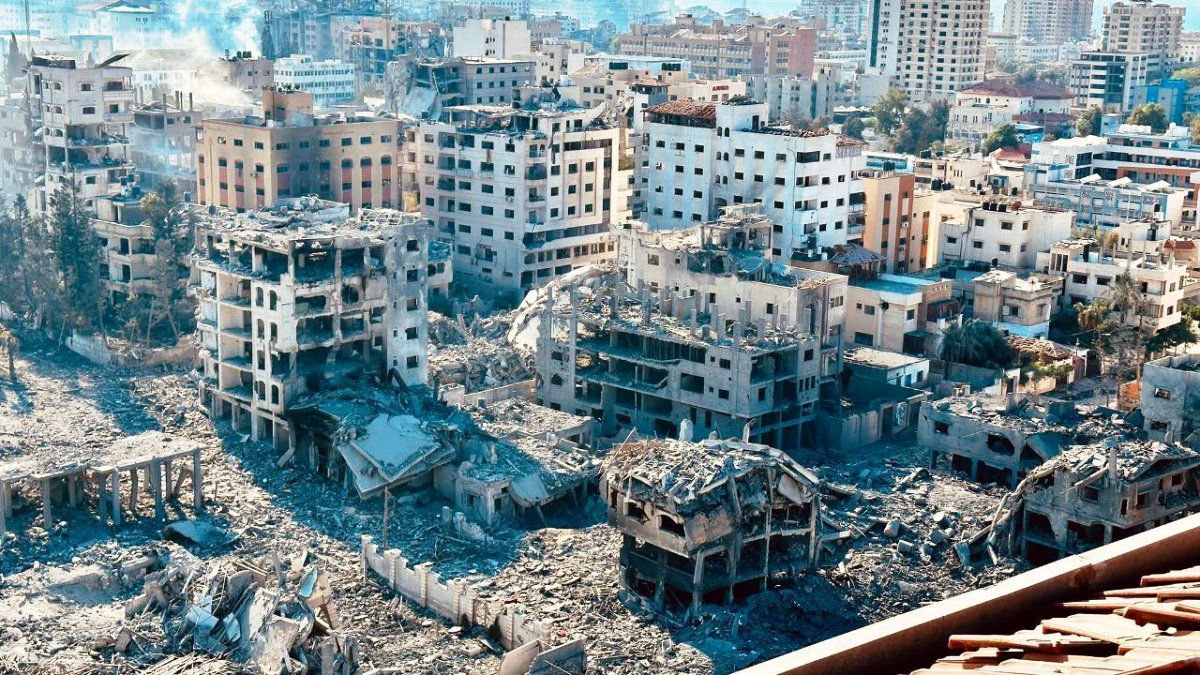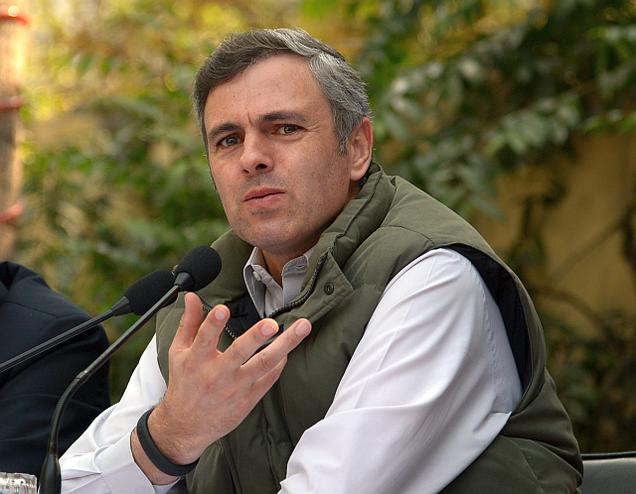UNITED NATIONS: (UN New) The aid that entered Gaza on Saturday “is only a small beginning and far from enough”, five UN agencies said in a joint statement. They called for a humanitarian ceasefire and safe access to civilians in efforts to save lives and prevent more suffering.

“Gaza was a desperate humanitarian situation before the most recent hostilities. It is now catastrophic. The world must do more,” they said.
The statement was issued by the UN Development Programme (UNDP), the UN Population Fund (UNFPA), the UN Children’s Fund (UNICEF), the World Food Programme (WFP) and the World Health Organization (WHO).
‘Far from enough’
A humanitarian convoy entered Gaza on Saturday morning via the Rafah border crossing with Egypt – the first since hostilities erupted two weeks ago.
The 20 trucks carried lifesaving items from the UN and the Egyptian Red Crescent, including tins of tuna and tomato paste, pasta, drinking water and medical supplies. Hundreds more trucks are awaiting at the border.
This “first, but limited shipment” will provide “an urgently needed lifeline to some of the hundreds of thousands of civilians, mostly women and children, who have been cut off from water, food, medicine, fuel and other essentials,” the UN agencies said, “but it is only a small beginning and far from enough.”
‘Time is running out’
Their statement highlighted the immense needs in the wake of the Israel-Gaza crisis, which began on 7 October after Hamas militants launched deadly attacks in Israel, killing scores and seizing more than 100 hostages.
Israel responded with air strikes and bombardment, a complete siege of Gaza, and ordered civilians to evacuate the northern part of the enclave.

More than 1.6 million people in Gaza are in critical need of humanitarian aid. Children make up nearly half the population are among the most vulnerable, along with pregnant women and elderly persons.
Furthermore, two weeks of constant bombings have left much of the civilian infrastructure in Gaza damaged or destroy, including shelters, health facilities, water, sanitation, and electrical systems.
The agencies warned that “time is running out before mortality rates could skyrocket due to disease outbreaks and lack of healthcare capacity.”
‘Alarming’ child death rate
Gaza’s hospitals are “overwhelmed with casualties” and people are facing mounting challenges accessing essential food supplies, they said. Health facilities no longer have fuel and are running on small amounts, which are expected to run out in the next day or so. Meanwhile, water production capacity is at five per cent of normal levels.
“Pre-positioned humanitarian supplies have already been depleted. Vulnerable people are at greatest risk and children are dying at an alarming rate and being denied their right to protection, food, water and health care,” they said.
Prior to the conflict, nearly one-third of the population of Palestine was food insecure. Today shops are running low on stocks, bakeries are closing, while tens of thousands are displaced and unable to cook or safely purchase food.
Save lives, prevent suffering
The UN agencies called for a humanitarian ceasefire, along with immediate, unrestricted humanitarian access throughout Gaza to allow aid workers to reach civilians in need, save lives and prevent further human suffering.
“Flows of humanitarian aid must be at scale and sustained, and allow all Gazans to preserve their dignity,” they said.

They appealed for safe and sustained access to water, food, health – including sexual and reproductive health – as well as fuel, and for the protection of civilians and civilian infrastructure, including health facilities.
“We call for the protection of humanitarian workers in Gaza who are risking their lives in the service of others,” they added. “And we call for the utmost respect of international humanitarian law by all parties.”
‘A drop in the ocean’
Jeremy Hopkins, UNICEF Representative in Egypt, said the agency’s contribution to the convoy – two trucks filled with 40,000 litres of bottled water – was but “a drop in the ocean”, given the immense needs in Gaza, including for a humanitarian ceasefire.
‘We also call on the parties to the conflict to avoid any targeting of health and education facilities, which allows us to deliver the aid safely to the health facilities and everywhere that they are needed,” he said.
Hopkins spoke to UN News several hours after the convoy passed through the Rafah crossing in southern Egypt, where hundreds more trucks are waiting should the border open up again.
He paid tribute to the dedicated UNICEF team on the ground who continue to serve under fire, and discussed the prospects for additional aid convoys.
This interview has been edited for clarity.
Jeremy Hopkins: Today, we were able to include two UNICEF trucks in the convoy with drinking water, 40,000 litres. It’s a drop in the ocean – literally, almost – and that will allow us to reach about 27,000 people with one day’s supply of drinking water. So, a very, very small amount went through today, which reinforces the urgent need to have a sustained humanitarian corridor that is open for supplies. And of course, we hope that there will be additional border posts opening so that the necessary supplies can get in.
UN News: Do you have any information about the next delivery and what that depends on? Do you also have additional emergency supplies in place once the next delivery is given the green light?
Jeremy Hopkins: So, we have quite a good pipeline of water and water systems equipment, medicine and health systems equipment, and a number of other specialized items for child protection and childcare. We have, I think, 12 trucks loaded on stand-by at the border that can be crossed over in a matter of hours the next time it opens. And we have a pipeline sort of coming in by plane and by truck from Cairo and from international destinations with more medical supplies, more water, water systems supplies. Because we know that the priorities in Gaza right now are water, food, medicine and fuel, and so we are prioritizing our pipeline accordingly. We have one million bottles of drinking water in the pipeline ready, just for example, so we have big quantities of the necessary materials. We just need the corridor to be open on a sustained, continuous basis.
UN News: Is there any information about the next delivery?
Jeremy Hopkins: We know that the authorities and the different parties are continuing to discuss how to manage this border in a more sustainable way, and we have every hope that they will do so. I think the details will become clearer as they become clear.
UN News: We now have 20 trucks inside Gaza. What are the arrangements and preparations inside the Gaza Strip to deliver the lifesaving supplies?
Jeremy Hopkins: I want to first recognize that we have a very dedicated team of UNICEF State of Palestine staff in Gaza who have been working day and night under terrible, terrible conditions to deliver assistance. So assistance has been ongoing since the beginning and, of course, prior to this particular terrible, terrible round of conflict. I know that our colleagues in Gaza have been repositioning the health centres with pre-positioned medical supplies, keeping some of the water systems running. I know we are down to five per cent of the normal capacity, but there are some water systems running. The only desalination plant that is still going is done so with UNICEF’s support. So, our colleagues – and I want to pay tribute to them – are doing a fantastic job in Gaza.
What we know about the evolving needs is there are one million people displaced. We know that at least 300,000 children are displaced. That means they have no home right now or they are not at home, and that means that the humanitarian needs are extremely urgent. For example, according to international standards, each person should have 15 litres of water to live in health and dignity – that’s drinking and washing and cooking and everything else. Right now, it’s down to little less than three litres of water per person in Gaza. We have these kind of needs and we know how to respond. We simply need the corridor to be opened so that we can respond.
UN News: You said that what entered today is ‘just a drop in the ocean’. Do you know exactly how long the supplies that arrived into Gaza today can cover the needs of people there?
Jeremy Hopkins: What went in today cannot cover the needs at all. It’s a very tiny, tiny proportion of what is needed. We need to have instead of 20 trucks a day at least 100, 200 trucks going in per day – that of course depends on what is on the trucks, but approximately speaking – with food, water, medicine and fuel. That is a necessary condition for us to be able to respond to the humanitarian lifesaving requirements and needs right now.
UN News: Since there is no ceasefire right now, what are the challenges to delivering and moving supplies across Gaza?
Jeremy Hopkins: It is going to be challenging. We need to deliver, and we have a humanitarian imperative which is driving us. At the same time, we do call for a cessation of hostilities immediately. Of course, that is the only way that we can actually deliver safely. But at the same time, we also call on the parties to the conflict to avoid any targeting of health and education facilities, which allows us to deliver the aid safely to the health facilities and everywhere that they are needed.
And we also remind the parties that health staff need to be protected in order to carry out their mandate.















